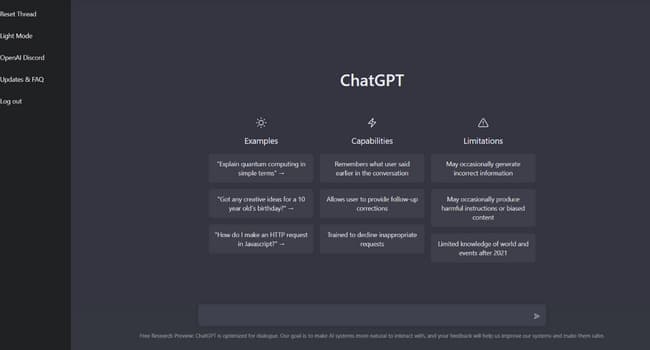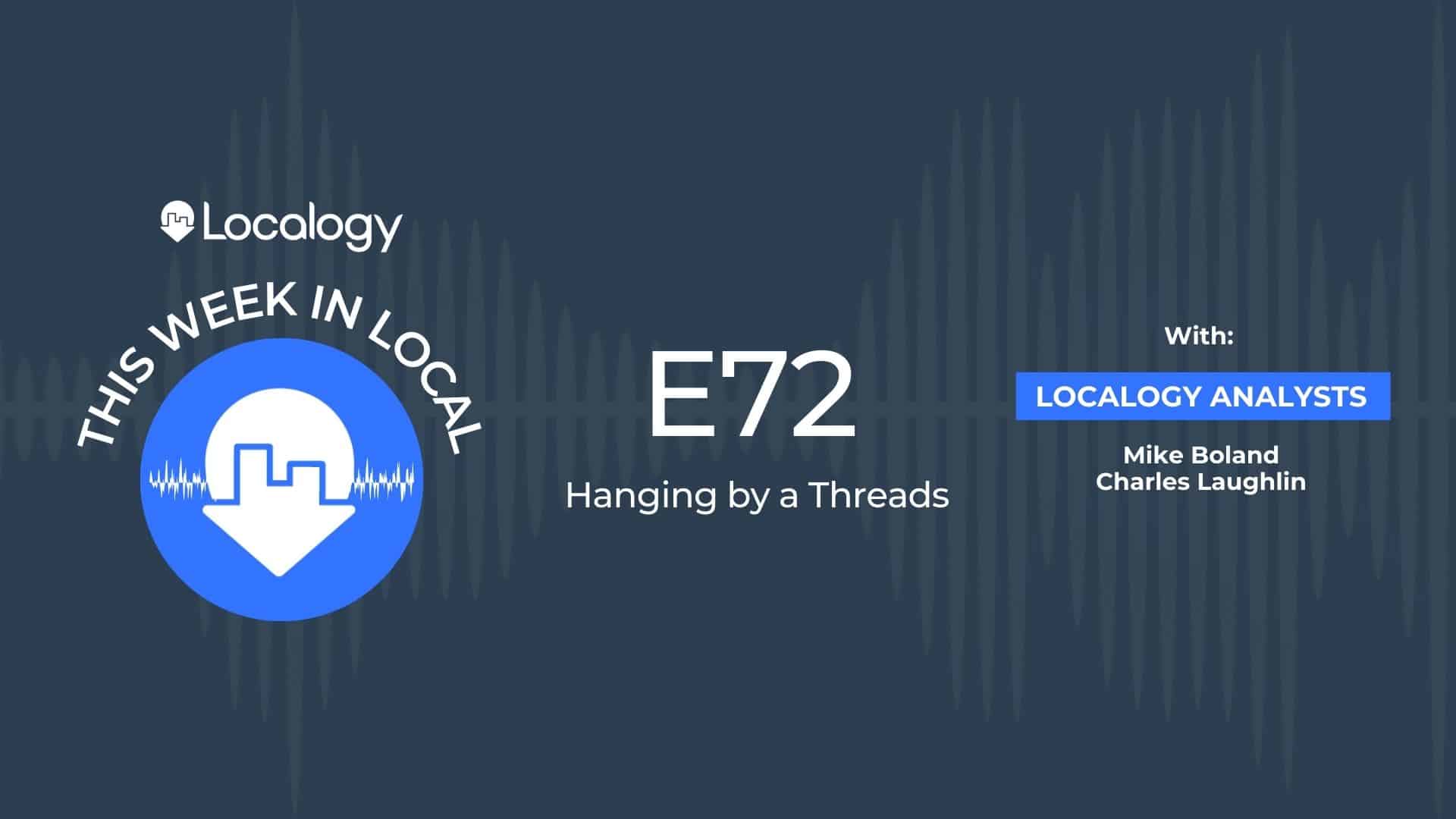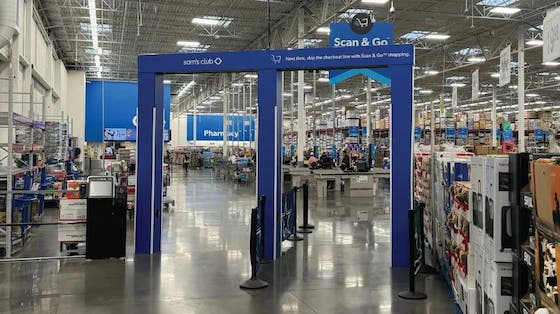If you are anything like me, you will often start to hate that thing that everyone is talking about. Just because. Before giving it a chance. Enter ChatGPT. Barely knowing what it was, I defaulted to hating it. So to avoid falling once again into that lazy trap of hating the thing everyone else is talking about, I decided to do my own research. You know, like on the Internet.
Otherwise, I would have kept stumbling upon takes like this on Twitter. And I would have kept rolling my eyes, and trying to find things that actually interested me like videos of divers interacting with tiger sharks.

Kind of a Big Deal
Well, as it turns out this ChatGPT thing is kind of a big deal. According to everyone on social media with an opinion who claims to have had a conversation with the hot new chatbot, ChatGPT is about to replace everything from Google search to higher education. For example.

Ok. First, let’s establish what, exactly, is ChatGPT?
Well, it’s an AI chatbot. ChatGPT was developed by OpenAI and built on the AI research lab’s GPT-3.5 model. The bot is designed to engage in dialogue. And also will apparently write you an essay if you ask it to.
One quick take is that anyone taking money from college students to ghostwrite their essays is about to be innovated out of a pretty sleazy side hustle. We doubt it ends there. Many creators (writers in particular) fear disruption by AI tools like ChatGPT. Many others see AI as an increasingly powerful tool that will support creators.
A Google Killer?
OpenAI’s website says the lab is “shaping the future of technology.” This doesn’t seem to be hyperbole.
San Francisco-based OpenAI, was founded by Sam Altman and Elon Musk back in 2015. Musk removed himself in 2018 (though he is still an original funder). Microsoft is also a major donor to Open AI, having dumped a billion dollars into the lab back in 2019.
The lab has both a for-profit and a non-profit wing. And its stated mission is to develop “friendly AI” in other words AI that benefits humanity as a whole. So Open AI’s stated role is not to summon the beast.
Still, the biggest question out there seems to be whether Open AI’s ChatGPT is really the Google killer that many seem to think it is. Microsoft’s involvement feels significant here. It’s worth pointing out that Microsoft’s Azure powers ChatGPT. And for many, so is Musk’s connection to OpenAI.
As you might guess, the hot takes on ChatGPT are all over the place. Here is one that we found intriguing.

Those who think ChatGPT will disrupt Google search contend that it will be a much easier, faster, and more pleasant way of accessing all of the world’s information, the role Google plays today. It seems many firmly believe Google faces the biggest threat yet to its dominance of search. If not now, then eventually, as bots improve.
And there are those who remain unconvinced that ChatGPT will take over the world. Or at least not yet. Some people are just hard to impress or hate to act as though anything impresses them. We all have that cousin, former coworker, or college friend.
By most accounts, the bot is scary good now. But it has flaws. It’s not very hard to find examples online of people citing flawed or just plain wrong search results on ChatGPT. Many point to an inability to do computations, and you see versions of the argument that an AI bot like ChatCPT is only as good as its training.
Of Two Camps
There seem to be two schools of thought on the threat/opportunity with ChatGPT. A recent Yahoo Finance article did a decent job of framing these views.
One side says, in essence, that pointing out the flaws in ChatGPT is to measure the tool by the wrong yardstick. Just wait, this argument goes.
This is from the just-you-wait camp, per Yahoo Finance.
“The fact ChatGPT generates grammatically correct text is partially what’s amazing,” said Reza Zadeh, who founder and CEO of Matroid (an AI computer vision company) and also an adjunct professor at Stanford University. “This isn’t something where they focused on making it accurate. Right now, it’s something that’s supposed to chat with you, giving non-trivial answers … It’s like we’re moving the goalposts to criticize it.”
And there is the “hold your horses” crowd, which seems to be saying it’s way too early to predict the demise of anything at the hands of ChatGPT. Certainly not Google. But again, there is a hint of the “at least not yet” vibe in this POV as well.
The Yahoo piece expressed this view through Nima Schei, founder & CEO of Hummimgbirds AI.
“ChatGPT replacing Google Search is like replacing a silo of lemons with a farmer planting lemon trees that potentially becomes a lemon farm – it’s possible, but not probable in the short-term,” Nima Schei told Yahoo Finance. “Google Search has its own advantages, specifically the amount of data they have, and the broader resources they have to collect data. Yet ChatGPT has a superpower, creating human-level bilateral communication, which is exceeding Google Search’s limitations in capturing human intelligence.”
Plans to Compete?
Another source of agita about Google’s face-off with GPT is the fact that Google, which is known for its AI prowess, hasn’t developed a competing consumer-facing chatbot. And according to what we’ve been reading this week, it has no immediate plans to do so, despite some reported rumblings from within Google’s own walls.
A CNBC article yesterday reported that Google employees raised concerns about AI at a recent all-hands meeting. Some employees reportedly expressed the fear that they are being outcompeted in the space. According to CNBC, Google execs said that there are no immediate plans to roll out a consumer chatbot like OpenAI’s ChatGPT.
The Google execs reportedly said at the all-hands that their main concern was “reputational risk”. If they put out a bot now that gave consistently wrong answers (as many say GPT does), this could do Google more harm than good. This certainly makes sense. But it is also reminiscent of the old “cannibalization” argument that kept Yellow Pages execs tied up in knots while Google picked apart their business.




